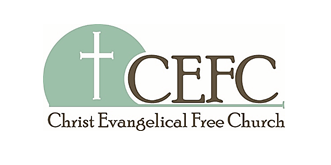EFCA Governance
EFCA has six provisional rules to assure congregational practice. The church’s Constitution and By-Laws need to incorporate the minimal rules to affirm congregational church government, such as:
1. Membership
The distinctive of a regenerate membership must be assured. (Acts 2:47)
Persons belonging must affirm a personal faith in Jesus Christ as their Savior and Lord. (Romans 10:9-10)
2. Government
The human authority of the church is vested in the collective will of its members under Christ and God’s Word. (Ephesians 2:19-22; 1 Cor. 12:12)
Delegation of authority must be done on the basis of the members’ abilities and spiritual gifts. (1 Cor. 12:4-6)
The elected leadership (Acts 14:23) shall be responsible for the general supervision of all the spiritual, physical, and financial affairs of the church. (2 Timothy 4:2)
They are subject to the final authority of the congregation. (1 Peter 5:3; Mark 10:43-45)
Authority to lead the church is given by the congregation as such:
- The election or affirmation of leadership is a trust given by congregational action.
- Leaders serve at the pleasure of the membership and are accountable to each other and the membership.
- Congregational meetings shall provide congregational endorsements and authorizations to the Board(s) of leaders and other officers and staff.
- Hence, leadership deliberations or decisions are subject to congregational support. (Not all matters are reviewed, only items the congregation may choose.)
3. Discipline
Matthew 18:15 instructs the Church in the procedure of discipline as follows:
First Step: Just between two of you | If they don’t respond, take one or two others as witnesses | If they don’t respond to others, tell it to the church | If they don’t respond to church elders, treat them as pagan. (Ephesians 4:1-3,32; Matt. 7:12; Phil. 2:3-4; II Cor. 2:5-11; 2 Thess. 3:14,15)
4. Board of Elders and Pastor
The congregation shall confer the elder led government of the church to an elected Board of Elders who shall function and lead the Body as a council of equals with plurality of leadership. (Acts 14:23; 1 Tim. 3:1-7, 5:17-18)
The Board of Elders shall be responsible for the general supervision of all the affairs of the Church. (Ephesians 4:1-16; Rom. 12:4-8. 1 Pet. 5:2-3)
It shall be the board’s duty to administer the business of the church in an orderly and efficient manner and provide spiritual leadership and direction to the congregation. (1 Cor. 14:40. Acts 20:28)
They shall consider and review all policies, make recommendations to the church, and carry out the instructions of the church. (2 Thes. 3:6-13 make model to follow)
The elders shall provide philosophical direction and goal-setting for all Christ EFC ministries through interaction, subsequent approval, and ownership by the membership.
The Elder with gift of pastor/teacher has as his chief task the equipping/preparing of the saints for the work of the ministry of the Church. (Ephesians 4:12-13)
“The chief speaker” (Acts 14:12) “First among equals” (1 Tim. 5:17) allows for functional gift-based diversity within the eldership team without creating an official superior office (autocracy) over fellow elders.
5. Board of Deacons
The office of Deacon is primarily to assist the Elders in the task of ministering to the flock. (Acts 6:1-7; 1 Tim. 3:8-13)
Greek for Deacon = “one who serves”, “minister”, “servant”. Deacons visit the sick – care for the poor – administer the Lord’s Supper; are the gatekeepers of the “material ministry” with responsibility for the care, maintenance, and improvements of the congregations property and equipment; and to develop and maintain the material and financial resources with an annual budget.
6. Budget
- The membership shall annually consider the vision/direction and faith planning expenditures, including itemized disbursements as recommended by the Boards of Elders and Deacons. (Luke 14:28-32)
- The congregation engages in buy-in and ownership of the why before the what. (Nehemiah 2:17,18)
- Adoption of the Faith Planning/Budget becomes congregational authorization of expenditures.
- The Elders and Deacons are the gatekeepers of the adopted Faith Planning.
Nehemiah Principle
“Vision and purpose must be restated every twenty-six days to keep the church moving in the right direction. In other words, make sure you communicate your purpose at least monthly. It is amazing how quickly human beings – and churches – lose their sense of purpose.” Purpose Driven Church by Rick Warren using Nehemiah 4:6-15.
